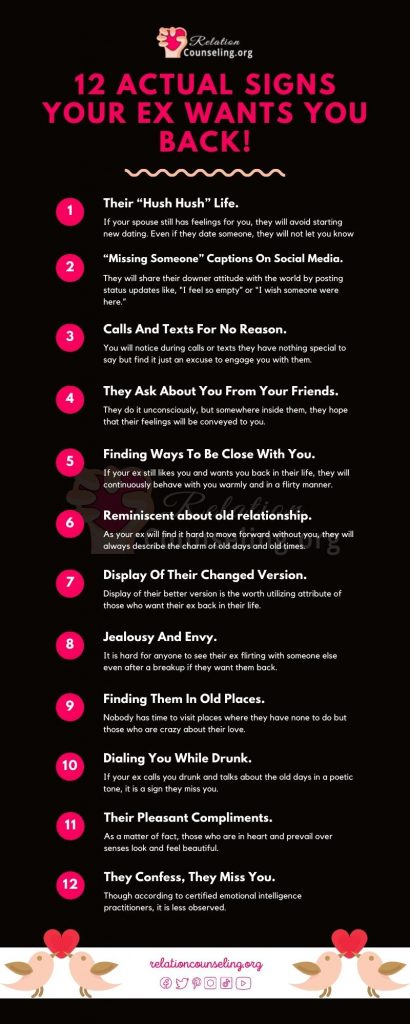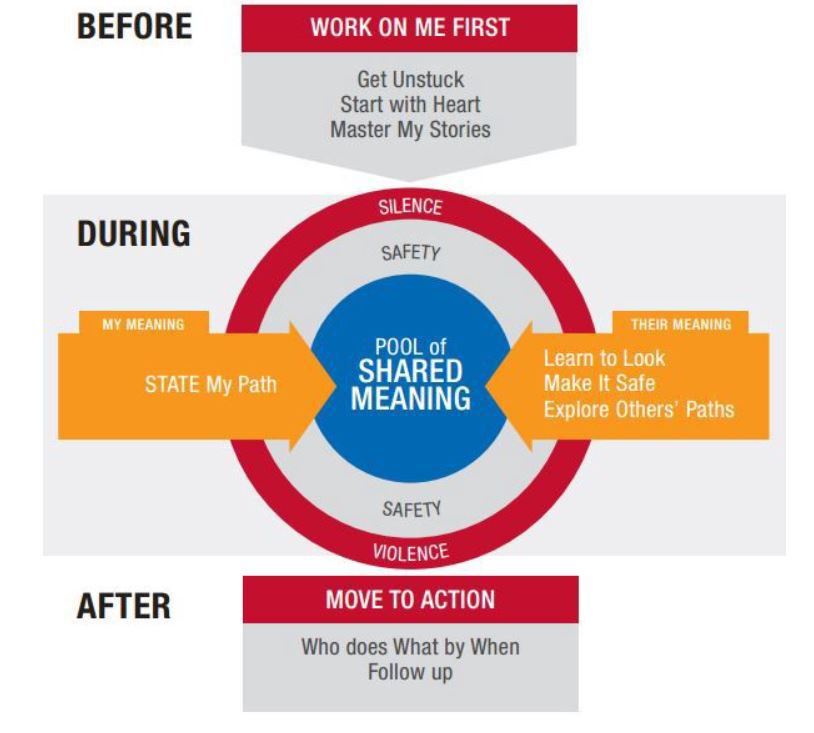The Company That Laid You Off Wants You Back: What To Say

Table of Contents
Assessing the Offer: Is It Right for You?
Before jumping at the chance to return to your previous employer, take time to objectively assess the offer. Don't let the emotional relief of having a job offer cloud your judgment.
Reasons for Reconsideration: Understanding Their Motivation
Why does the company that laid you off want you back? Understanding their motivation is crucial. Did a key employee leave, creating a skill gap you perfectly fill? Was there an organizational restructuring that unexpectedly created a need for your expertise? Perhaps they realized your value after your departure. These insights will inform your approach.
- Evaluate if the role aligns with your career goals: Has your career trajectory changed since your layoff? Does this offer still fit your long-term aspirations?
- Consider if the company culture has changed since your layoff: Have there been significant shifts in management, company values, or overall work environment? Talk to former colleagues if possible to gauge the current atmosphere.
- Research recent company performance and stability: Check news articles, financial reports, and social media to understand the company's current financial health and stability. Is this a temporary fix, or a sign of long-term growth?
Weighing the Pros and Cons: A Balanced Approach
Once you understand their reasoning, create a balanced list of pros and cons to help you make an informed decision about returning to your previous employer. Consider both tangible and intangible factors.
- Compare the new offer to current job prospects: Are there better opportunities on the market? How does the salary and benefits package compare to other offers you may have received?
- Account for lost time and potential career setbacks: Consider the time spent unemployed and any potential career setbacks resulting from the layoff. Will returning to your old position put you back on track, or hinder your progression?
- Factor in any emotional baggage from the initial layoff: Returning to a workplace where you were previously laid off can be emotionally challenging. Honestly assess your feelings and whether you can move past the past.
What to Say During Initial Contact: Making a Positive First Impression
The initial contact is crucial. You need to convey gratitude, enthusiasm, and preparedness.
Expressing Gratitude and Interest: Show Your Enthusiasm
Begin by expressing your sincere appreciation for the offer and your genuine interest in the opportunity. Avoid negativity related to the layoff. Focus on the future.
- Thank them for considering you: A simple "Thank you for reaching out and offering me this opportunity" goes a long way.
- Express your interest in learning more about the opportunity: Show your genuine enthusiasm by asking specific questions about the role.
- Ask clarifying questions about the role and the company's current situation: Demonstrate your interest and preparedness by actively seeking information.
Asking Strategic Questions: Demonstrating Your Preparedness
Prepare insightful questions that demonstrate your understanding of the company and your proactive nature. This shows you're not just looking for a job, but a place to contribute.
- Inquire about changes within the company since your departure: Show you've been keeping tabs on the company's progress.
- Ask about the team structure and dynamics: Understanding the team's makeup can help you anticipate potential challenges and opportunities.
- Seek clarification on the reasons for the rehire: This shows you're looking for a long-term solution, not just a temporary fix.
Negotiating Your Return: Advocating for Your Worth
Don't shy away from negotiating your return to your former employer. Your skills and experience still hold value.
Salary and Benefits: Knowing Your Worth
Negotiating salary and benefits is a crucial part of accepting a "laid off job offer." Don't undervalue yourself.
- Research comparable salaries for similar roles: Use online resources like Glassdoor or Salary.com to find comparable salaries for similar roles in your area.
- Prepare a counteroffer based on your research and experience: Be confident and assertive in stating your desired salary and benefits package.
- Be prepared to compromise while advocating for your worth: Negotiation is a give-and-take process. Be willing to compromise while still securing a fair compensation package.
Addressing Concerns: Open Communication is Key
Use this opportunity to openly address any concerns you have about the role or the company. Open communication builds trust.
- Clearly articulate your expectations for the role and the company: Be upfront about your needs and priorities.
- Discuss any concerns about job security or company stability: Address any lingering doubts you may have about the company's financial health.
- Negotiate for clear expectations and performance metrics: Ensure you have a clear understanding of what's expected of you and how your success will be measured.
Before Accepting the Offer: Due Diligence is Paramount
Before you sign on the dotted line, take one last look at the offer. Ensure it aligns with your expectations and career goals.
Reviewing the Contract Carefully: Protecting Yourself
Take the time to thoroughly review the contract before accepting the offer. This is a critical step in the rehiring process.
- Review the compensation package thoroughly: Make sure everything aligns with what you negotiated.
- Ensure the job description aligns with your expectations: Confirm that the role's responsibilities and expectations haven't changed.
- Understand the terms of your employment contract completely: Have a lawyer review the contract if necessary.
Seeking External Advice (If Needed): Getting Support
If you're uncertain, seek advice from a trusted source before making a final decision on this offer to rejoin your former company.
- Consult with a trusted friend or family member for support: Get a second opinion from someone who knows you well and can offer unbiased perspective.
- Seek advice from a professional career counselor if needed: A career counselor can provide expert guidance and help you weigh your options.
- Research the company further before making a decision: Double-check your initial research and look for any additional information that might influence your choice.
Conclusion: Making the Right Decision After a Layoff
Being offered your old job back after a layoff is a multifaceted situation. By carefully assessing the offer, preparing thoughtful responses, and effectively negotiating your terms, you can confidently decide what's best for your future. Remember to weigh the pros and cons thoroughly, ask clarifying questions, and never hesitate to negotiate for what you deserve. If you find yourself in the position where the company that laid you off wants you back, use this guide to navigate your return successfully and turn this unexpected opportunity into a positive career move. Don't let this chance pass you by – use it to your advantage!

Featured Posts
-
 Golds Record High Understanding The Trade War Impact On Bullion
Apr 26, 2025
Golds Record High Understanding The Trade War Impact On Bullion
Apr 26, 2025 -
 Rethinking Middle Management Their Crucial Role In Employee Development And Company Growth
Apr 26, 2025
Rethinking Middle Management Their Crucial Role In Employee Development And Company Growth
Apr 26, 2025 -
 Abb Vie Abbv Higher Profit Forecast Driven By New Drug Performance
Apr 26, 2025
Abb Vie Abbv Higher Profit Forecast Driven By New Drug Performance
Apr 26, 2025 -
 Trade Wars And Gold Why Bullion Prices Are Surging
Apr 26, 2025
Trade Wars And Gold Why Bullion Prices Are Surging
Apr 26, 2025 -
 Strategic Military Base A Focal Point In The Us China Power Struggle
Apr 26, 2025
Strategic Military Base A Focal Point In The Us China Power Struggle
Apr 26, 2025
